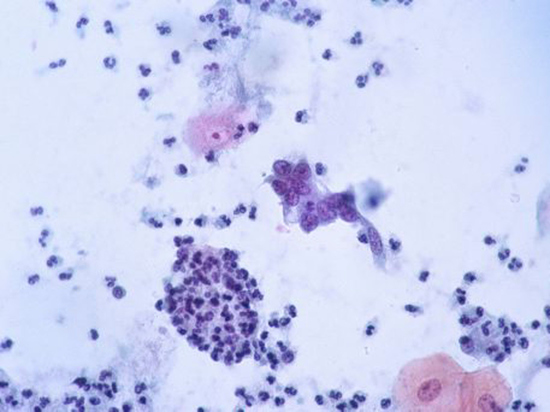Russian scientists are looking for a way to deprive cancer cells of the ability to rejuvenate
[ad_1]

It looks like a mechanism has been found that prevents old cancer cells from recovering.
The insidiousness of cancer cells, or rather, the mechanism of their plasticity, adaptability, may have been “revealed” by biologists from the Institute of Gene Biology of the Russian Academy of Sciences and the National Research Nuclear University MEPhI. Using the example of lung cancer cells, they showed how to prevent them from reprogramming after low doses of chemotherapy. We talked about this with the candidate of biological sciences, an employee of the laboratory “Chemoinformatics and molecular modeling” Maria Zamkova.
The adaptability of cells to various contractors is their fundamental property. If they did not have the ability to adapt, inanimate nature would easily destroy life.
In tumor cells, the ability to adapt is especially pronounced, which is why the disease is so insidious. The genes of cancer cells can, depending on the stimulus, work, “silent” or reprogrammed, becoming stronger.
It is known that after therapeutic doses of chemicals, tumor cells seem to age: they slow down division, slow down metabolism. Previously, scientists, relying on the analogy with human old age, thought that this was their true path to death. However, the cancer cells fooled them. Unlike human old age, their temporary aging turned out to be reversible: the tumor in the state of old age heals the damage and returns to its “criminal activity” again.
“Now we are not talking about strong doses of drugs, which, of course, are able to finish off cancer cells to the end (but also damage healthy ones,” says Zamkova. – When we damage the DNA of a cancer cell with a small dose of a chemotherapy drug, the cell, as a rule, stops its division, the cell cycle freezes. That is, everything in it, as it were, indicates that preparations are underway for the final extinction. A few years ago, scientists discovered that such cells can repair themselves, get out of aging and continue to divide. Moreover, their new clones often turn out to be more aggressive, perhaps because small doses of chemotherapy drugs help them adapt and become stronger.
According to the researcher, one new compound is currently being tested in the laboratory, which, according to preliminary data, prevents cancer cells from “exiting” their imaginary aging when treated with traditional drugs.
“This is not a completely new substance,” the researcher explains, “it was invented in the United States several years ago. Scientists have studied its influence on the aging process, as well as on the spread of negative effects from tumor senescent cells on the tumor microenvironment, etc. But what happens after therapy, when the cells end their “aging” period (usually this happens after 2-3 weeks, as in vitro studies have shown), scientists began to study this recently, much is still unclear.
The scientists decided to investigate the initially expected process of rebirth of lung cancer cells after treating them with small therapeutic doses of a new drug. It turned out that after the time allotted to them for “old age”, the cancer cells did not reanimate.
It turns out that for the first time, scientists have achieved complete death of cancer cells from a small therapeutic dose of a traditional chemical when used together with an investigational drug!
“We assume that the drug that we tested affects the reprogramming of gene transcription, in particular, it affects the cell cycle regulator protein,” explains Zamkova. – When a cell stops dividing, its level rises greatly, which prevents further division. But often in cancer cells, the level of the regulator protein drops again over time, and the division process resumes. It is possible that the drug we are testing does not allow its production to decrease.
Scientists note that so far they have managed to consolidate the effect of “old age” and achieve death for only one type of tumor cells. Other test substances were not affected. Research is ongoing.
[ad_2]
Source link








